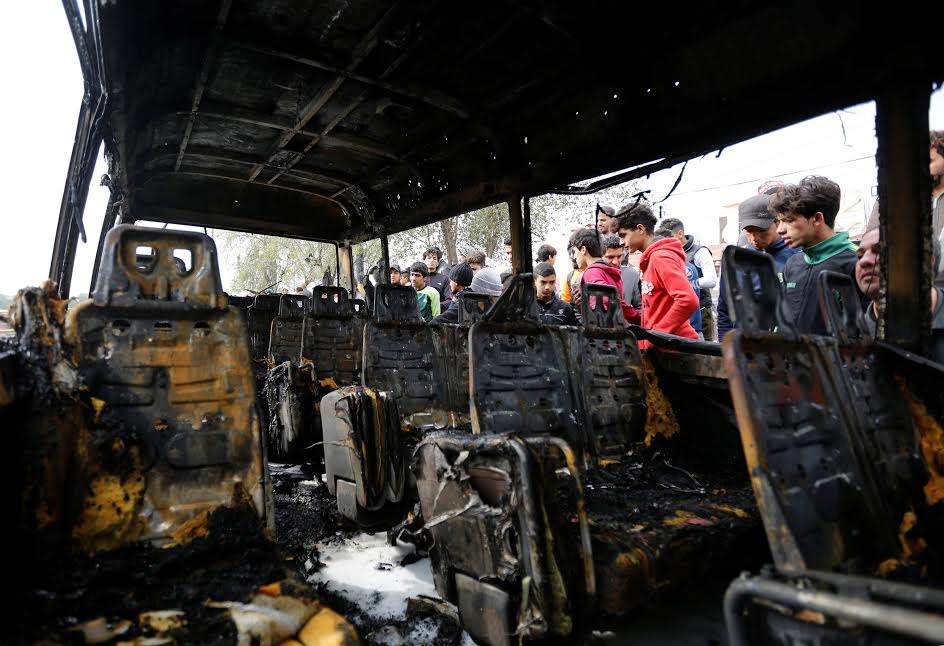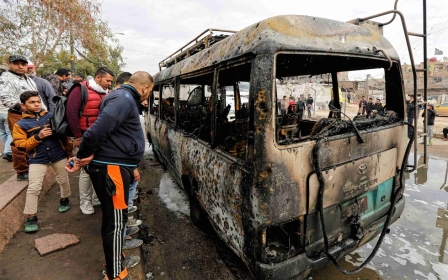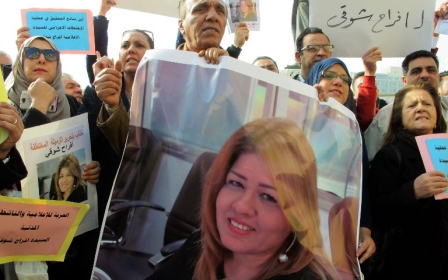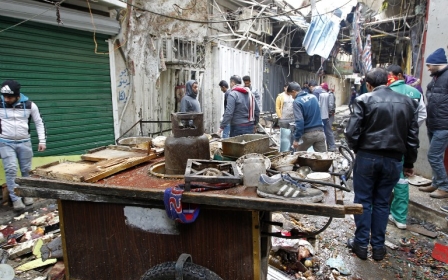Baghdad bombings: Security chiefs blame removal of checkpoints for breach

A security official in Baghdad has blamed a recent spate of deadly bombings in the Iraqi capital on the government, which decided last month to remove checkpoints from the city’s streets.
Baghdad, a city of around seven million, was hit on Monday by two car bombings that killed dozens of people.
Both bombings, which targeted Shia-majority areas of the city, were later claimed by Islamic State.
The head of Baghdad’s Emergency Battalions, a branch of the federal police, said that the decision to remove many of the city’s checkpoints had led to recent “breaches”.
“After the security situation in Baghdad calmed down, many of the checkpoints in the city were removed to alleviate the suffering of citizens,” Alaa Gharib al-Zubaidi told Kurdish news site Rudaw on Tuesday.
“As a result of that a number of breaches have happened recently,” he said, when asked about what led to the twin bombings on Monday.
Complaints over checkpoints
The decision to remove some of the checkpoints was taken late in December as a means of improving traffic in the city.
Baghdad previously had over 300 checkpoints, both fixed and temporary and run either by the police or the military.
The proliferation of checkpoints in response to earlier devastating bomb attacks caused huge traffic tailbacks, and had become a major cause of complaints for the city’s residents.
Announcing the decision, authorities said they had improved their intelligence work and their cooperation with local communities, meaning the checkpoints were no longer necessary.
Iraqi Prime Minister Haider al-Abadi on Tuesday accused opponents of exaggerating the scale of the bombings by spreading fake news.
Abadi, who has faced relentless challenges from within his own bloc and across the political spectrum since taking the helm in 2014, said media outlets had been fed reports of bombings that never happened.
"There are parties exaggerating the situation... I always say that one fallen martyr is one too many, but spreading fear among the people, that's called a fifth column," he told reporters.
Despite allegations that casualty numbers are being exaggerated, the UN confirmed on Monday that Baghdad governorate is second only to Nineveh province in terms of civilian deaths.
In Mosul, the state capital of Nineveh, the Iraqi armed forces and supporters are currently battling to retake the city from Islamic State militants.
A report released by the United Nations Assistance Mission for Iraq on Monday found that 208 civilians were killed in Nineveh during December 2016, compared to 109 in Baghdad.
Meanwhile, the US-led coalition said on Wednesday it has doubled to about 450 the number of military advisors assisting Iraqi troops engaged in the fight to retake Mosul from Islamic State groups fighters.
"We have increased the number of advise and assist forces that are there with the ISF (Iraqi Security Forces) command elements to help advise them as they move forward and to synchronize operations," coalition spokesman Colonel John Dorrian said in a video conference from Baghdad.
Dorrian said the reinforcements were part of a series of measures taken to "accelerate the advance of the Iraqi security forces."
Middle East Eye propose une couverture et une analyse indépendantes et incomparables du Moyen-Orient, de l’Afrique du Nord et d’autres régions du monde. Pour en savoir plus sur la reprise de ce contenu et les frais qui s’appliquent, veuillez remplir ce formulaire [en anglais]. Pour en savoir plus sur MEE, cliquez ici [en anglais].




